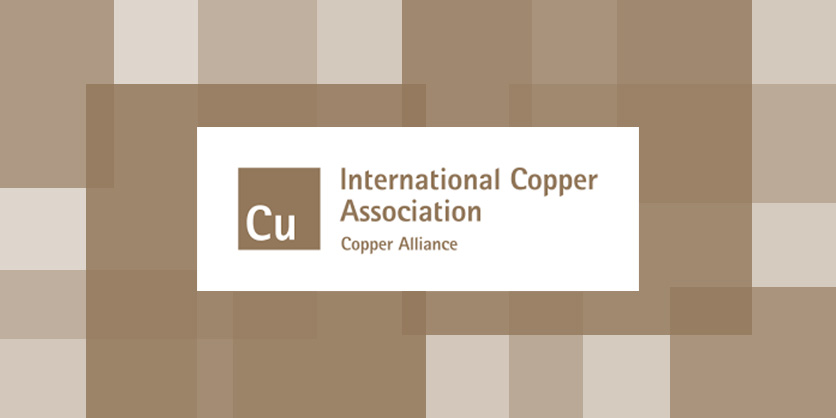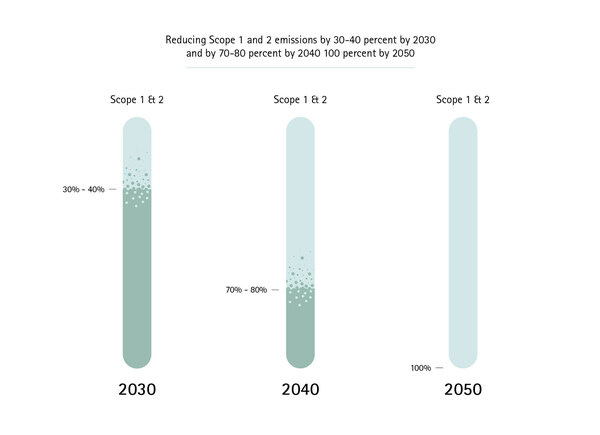Members of the International Copper Association (ICA) Pledge to Tackle Carbon Emissions to Achieve Net Zero by 2050

March 9, 2023
Members of the copper industry’s leading trade association (ICA) have set out ambitious plans to reach net zero in Scope 1 and 2 emissions by 2050, and significantly cut Scope 3 emissions.
In a new roadmap launched by the International Copper Association (ICA), members have aligned on an ambition to reach net zero in Scope 1 and Scope 2 emissions by 2050, and work toward the same goal for Scope 3 emissions.

As copper demand is set to double by 2050, the roadmap, Copper—The Pathway to Net Zero, sets out a clear ambition for ICA’s members—among the largest producers of refined copper in the world—to reduce Scope 1 and 2 emissions by 30-40 percent by 2030 and by 70-80 percent by 2040. Regarding Scope 3 emissions, members will work with value chain partners to reduce emissions 10 percent by 2030, 30-40 percent by 2040, and 60-70 percent by 2050. These collective ambitions show a clear trajectory to achieving defined emissions reductions of up to 85 percent by 2050, with the balance to be addressed through advanced technologies and enhanced collaboration with value chain partners.
Refined copper production emitted an estimated 97 million tonnes of CO2 equivalent in 2018. Scope 2 emissions accounted for 46 percent of these emissions, followed by Scope 3 at 31 percent and Scope 1 at 23 percent. This constitutes around 0.2 percent of global man-made emissions.
ICA estimates that certain industry needs and policy goals must also be met in order to hit the roadmap’s goals. These include further research and development into innovative technologies for emissions reduction, the decarbonization of local power grids and regulatory certainty, including fair and stable royalties and long-term mining licenses.
The roadmap states how ICA members will reduce Scope 1 and 2 emissions through four abatement levers based on market-ready and developing technologies: alternative fuels, equipment electrification, decarbonized electricity, and energy efficiency.
Moreover, the collective ambition outlined in the roadmap is based on current knowledge of decarbonization technologies and on a set of sound hypotheses about availability at scale, and the cost and abatement potential of these technologies. If required at all, carbon offsets and commercially unrealized technologies like carbon capture would be limited to minimal, highly specific cases.
The copper industry produces a key raw material used in a vast array of energy generation, energy transmission and digital applications, as well as energy-using products. Copper is essential for the transition toward a carbon-neutral economy and, as a result, global demand for copper is expected to double by 2050. It is therefore vital that the industry sets down clear best practice guidelines to help others reach the targets outlined in the commitments made in the Paris Agreement on December 12, 2015.
Quotes from the ICA
Shehzad Bharmal, ICA Chair and Senior Vice President, Base Metals at Teck Resources, said, “Copper is the catalyst at the heart of the energy transition, with two thirds of the technologies for decarbonization requiring copper as a core component. We at ICA want to ensure that how we produce that copper is aligned with its most common end use of enabling and accelerating the low carbon transition. That’s why ICA members have aligned on a collective plan to catalyze the industry’s progress toward net-zero production. ICA’s roadmap lays out a pathway to build on existing member company commitments to responsible copper development while meeting the growing demand for this essential material.”
Anthony Lea, President, International Copper Association, said, “Copper is the cornerstone material for a net-zero future, and our industry is committed to producing copper sustainably and with a steadily reducing carbon footprint. Meeting net-zero goals requires more than just investment; it requires partnerships across the entire value chain. ICA’s members are ready to collaborate and partner with all stakeholders to further improve industry sustainability and meet our 2050 goals.”
Bernard Respaut, Global Lead, ICA Clean Energy Transition team and Chief Executive of the European Copper Institute said, “Through our roadmap, additional partnerships and individual commitments, our members are on a pathway toward meeting the expected rapid growth in copper demand as sustainably as possible. However, we cannot achieve carbon-neutral copper production by 2050 on our own. Our industry needs a global regulatory environment that prioritizes innovation, stability and long-term predictability. We are ready to work with every stakeholder to ensure responsible, sustainable copper production for tomorrow’s net-zero world.”
Iván Arriagada, CEO of Antofagasta PLC, said, “Antofagasta is committed to a modern and sustainable mining future, reflecting the carbon neutral aspirations of the industries and economies we help to decarbonize. The new roadmap, agreed to by International Copper Association members, clearly demonstrates the industry’s collective ambition to go net zero by 2050, in a manner that transparently incorporates the global mining industry’s best practices.”
Roland Harings, CEO of Aurubis, said, “Copper is a vital material in the global decarbonization shift, and Aurubis is highly committed to producing climate neutral copper well before 2050. The ICA members’ launch of the decarbonization roadmap demonstrates a broad industry ambition to reach net zero copper production by 2050 and is a strong first step in a coordinated industry effort to realize sustainable, efficient and net zero operations by 2050.”
Richard C. Adkerson, Chairman and Chief Executive Officer, Freeport-McMoRan, said, “The copper Freeport produces is essential to the technologies that will accelerate the shift toward a net zero economy. We are committed to measurable progress in advancing our climate goals, however we cannot achieve our climate objectives alone. New technological solutions, innovations and partnerships will continue to be required – many of which will be driven by industry and value chain collaboration. The announcement of ICA’s global decarbonization roadmap represents an important step and vital alignment across the copper industry to take practical, responsible steps toward a net zero mining future.”
Mike Westerman, Industrial Lead – Copper Assets, Glencore, said, “As economies and industries worldwide seek to decarbonize to achieve their Paris Agreement targets, copper has become an essential material in this energy transition. Glencore is proud of the role it plays in supporting the transition to a low-carbon economy and we are pleased to be part of a wider, collaborative industry ambition toward net zero by 2050 as described in the ICA member roadmap.”
Francisco López Guerra Larrea, Sustainability Director, Grupo México Mining Division, said, “Our commitment to responsible, transparent and sustainable mining operations means Grupo México continues to set emission and environmental targets in line with the ambition of the Paris Agreement, the technology-readiness and the regulatory environment of the geographies in which we operate. The Pathway, agreed to by ICA members, will help us facilitate industry-wide collaboration on solutions, as we can only create a net zero copper industry by working together, implementing sector best practices, and finding synergies that work.”
The Copper—The Pathway to Net Zero roadmap builds on previous best practice guidelines by ICA. In 2020 with the support of ICA, The Copper Mark®, an independent third-party assurance framework, was launched. The Copper Mark® was designed to provide all stakeholders with the confidence that certified copper production sites operate according to internationally accepted, responsible industrial practices.











![Guide to the Canadian Electrical Code, Part 1[i], 26th Edition– A Road Map: Section 56](https://electricalindustry.ca/wp-content/uploads/2022/11/Guide-CE-Code-2.png)



